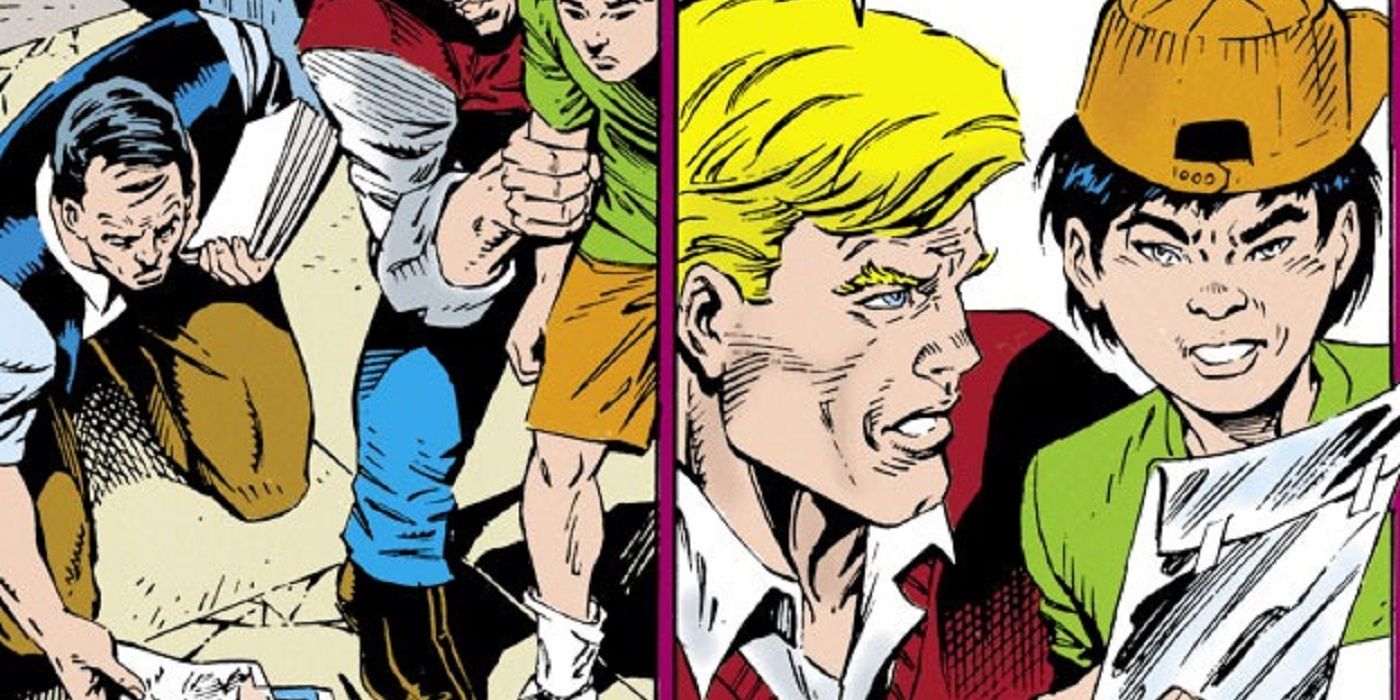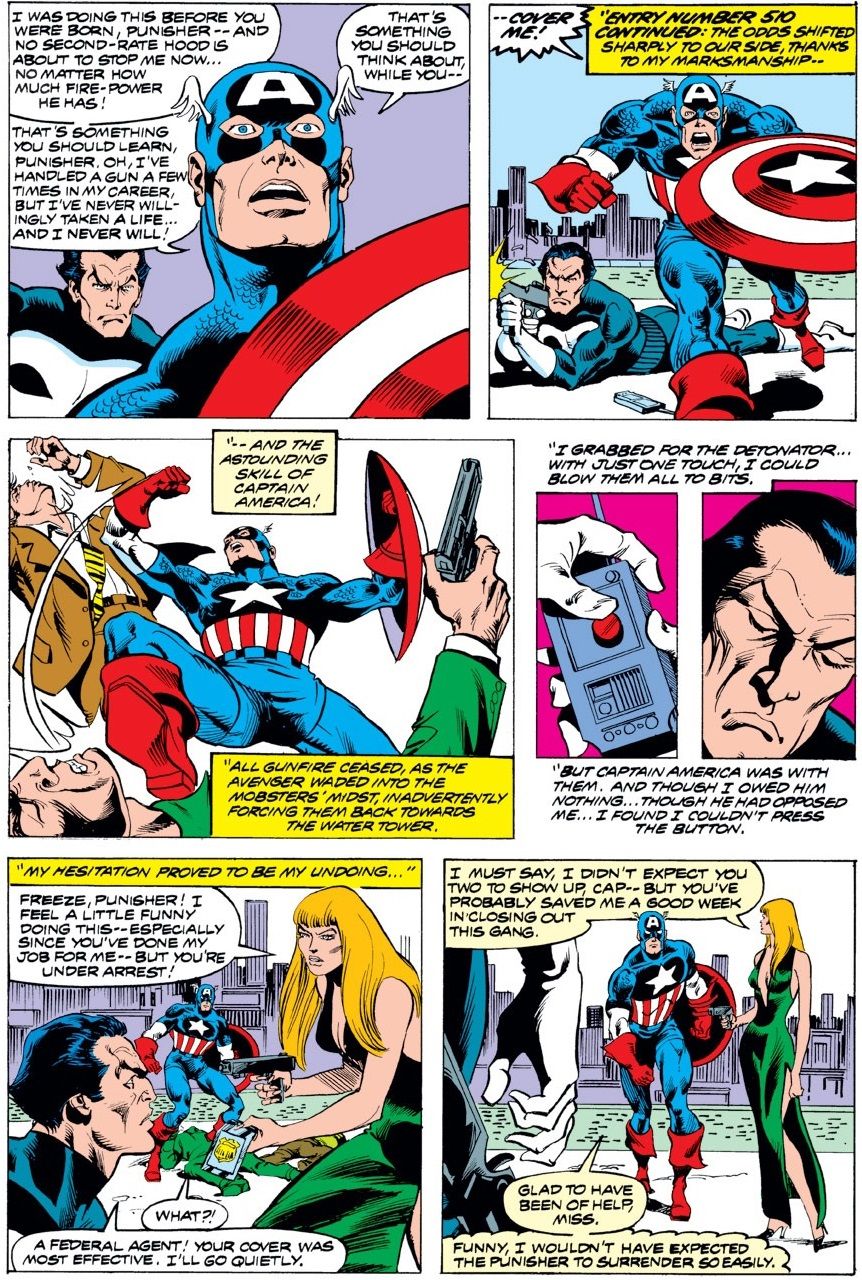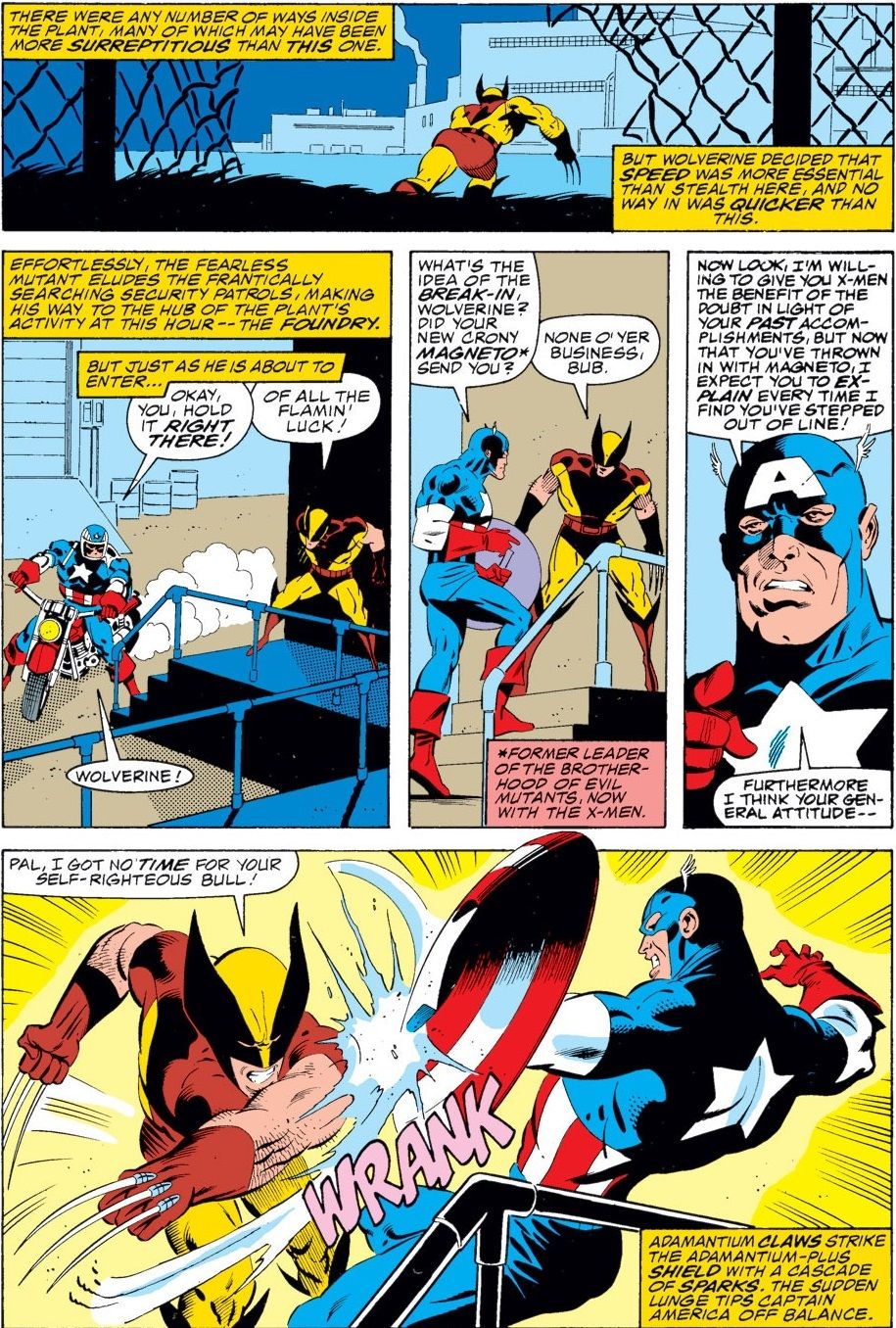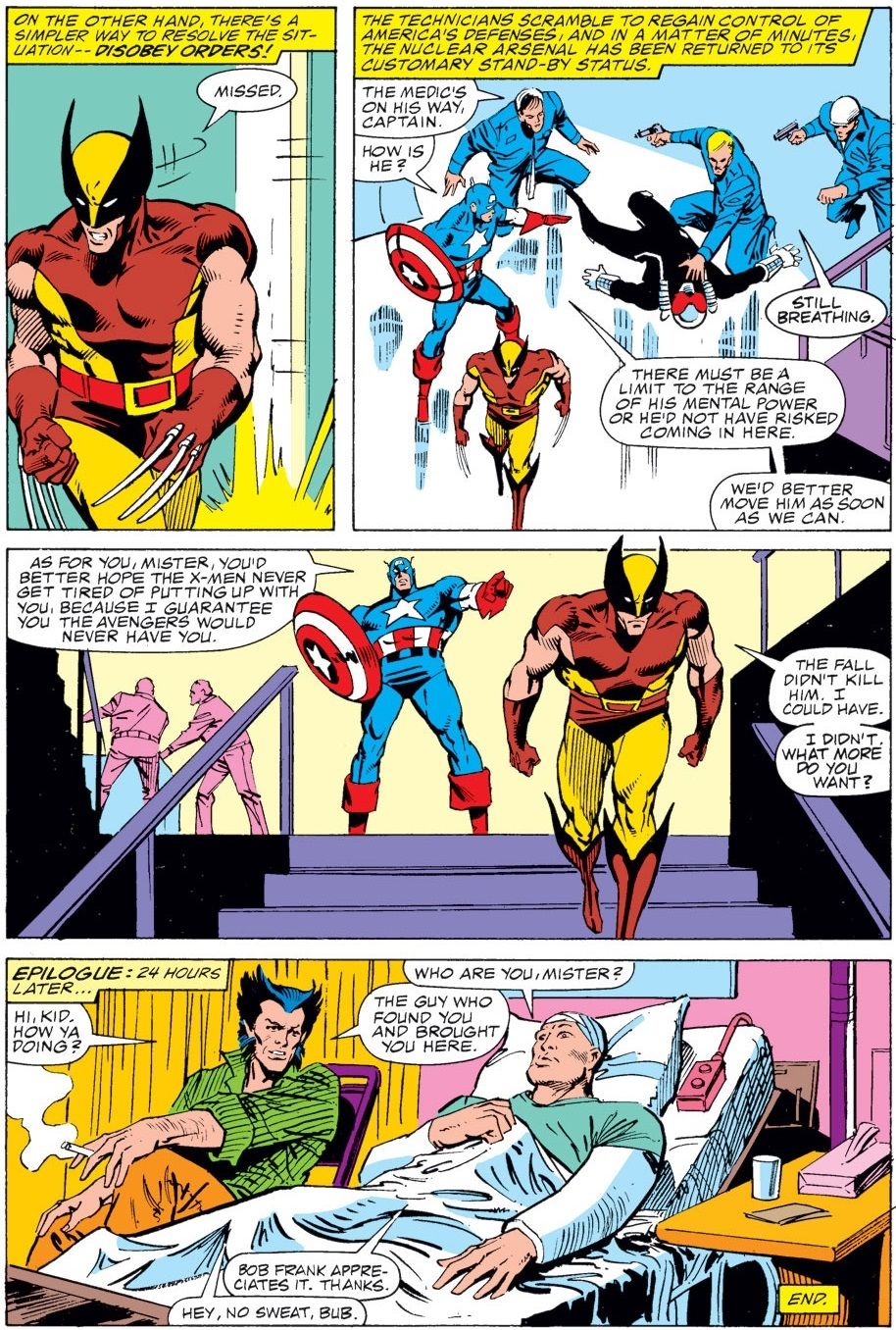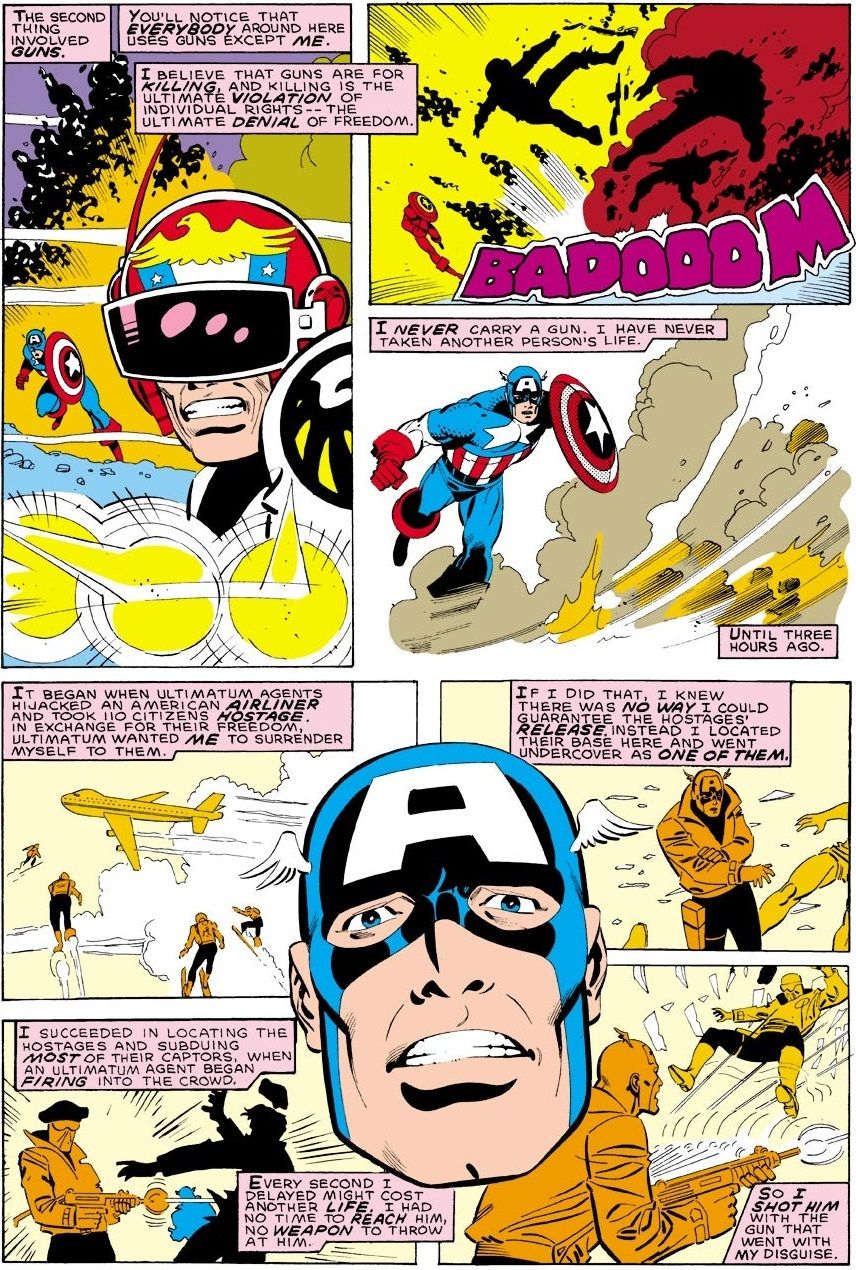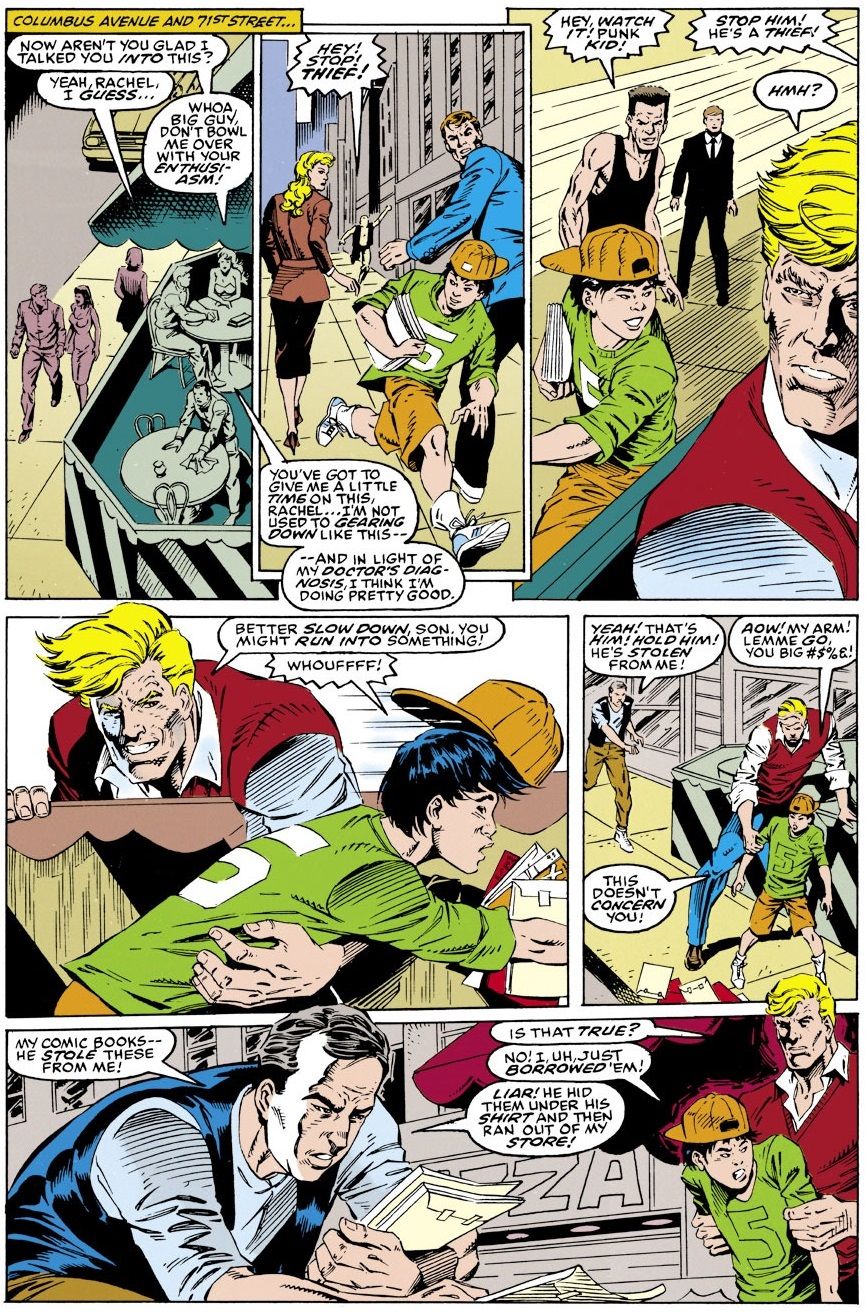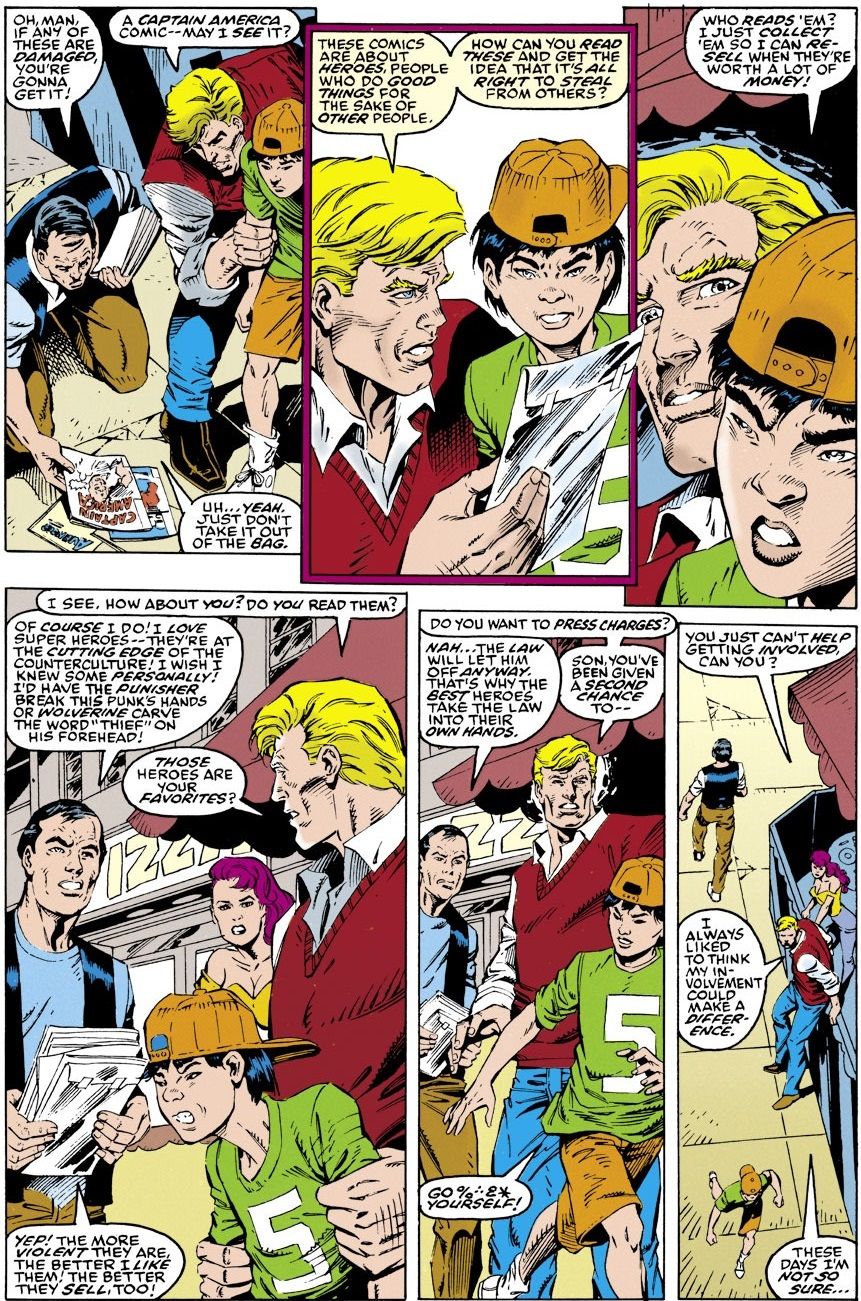In Meta-Messages, I explore the context behind (using reader danjack's term) "meta-messages." A meta-message is where a comic book creator comments on/references the work of another comic book/comic book creator (or sometimes even themselves) in their comic. Each time around, I'll give you the context behind one such "meta-message."
Today, we look at Captain America struggling with his place in a grim and gritty world.
One of the fascinating transformations over the years in Marvel Comics has got to be Captain America's journey from World War II soldier to a guy who denounces killing of any kind. When Jack Kirby and Joe Simon were doing Captain America in the 1940s, they certainly didn't have Captain America running around gunning down bad guys left and right and snapping necks in every other panel, but at the same time, they did not keep Cap from killing, as well, when the circumstances called for it. Later on, when Stan Lee and Jack Kirby brought Captain America back in the 1960s, their initial instinct when he got his own comic book feature was to go back in time and tell stories of Cap during World War II. These stories were firmly set within a war set-up, so Captain America and Bucky were again willing to kill bad guys (although, of course, all within the structure of the Comics Code Authority, so lots of explosions and not a lot of gunfire). When Jim Steranko had his epic run on Captain America (brief but iconic), he was also not shy about Captain America killing bad guys in the fights.
But by the late 1970s/early 1980s, Marvel was firmly in a "heroes don't kill" mindset and that was never more evident than in the adventures of Captain America. For instance, check out this confrontation with Captain America and the Punisher in Captain America #241 (by Mike W. Barr, Frank Springer and Pablo Marcos)...
By the time Mark Gruenwald took over writing duties on Captain America in 1985, he was ALL about Cap's morality and contrasting it to the increasingly grim and gritty mid-1980s.
When Captain America and Wolverine meet up in Captain America Annual #8 (by Gruenwald, Mike Zeck and John Beatty), Captain America quickly gives Wolverine some grief about ethics...
They make up (as Cap actually realizes that he is being a bit of a jerk) and they team-up. However, in the end, Wolverine decides not to save the villain of the issue, letting him fall to his presumed death. Cap is not a fan...
Soon after this, Captain America was forced to kill a bad guy himself (one of the classic "Kill the bad guy or let a bunch of innocents die") and Cap is WRECKED about it, as seen in this page from Captain America #323 (by Gruenwald, Paul Neary and John Beatty)...
Fast forward to early 1994. The comic book speculator boom is about to die down, but it was still going strong in late 1993, and the most popular superheroes, sales-wise, tended to be the grittier heroes like Wolverine, Punisher, Ghost Rider, Spawn, Cable, etc.
Gruenwald has Captain America be confronted by the changing times head on in Captain America #425 (by Gruenwald, Dave Hoover and Danny Bulanadi), when he catches a kid stealing some comic books and Cap learns that his comics are selling a lot less than comics starring anti-heroes like Punisher and killer heroes like Wolverine...
This, of course, reflected the actual state of the comic book industry at the time.
Gruenwald then spends the rest of his run on Cap having Cap struggle with his place in the "American Dream," but by the time that he seemingly dies at the end of Gruenwald's run, he is actually pretty well settled with his place in it all.
If anyone else has a suggestion for a good Meta-Messages, drop me a line at brianc@cbr.com!

